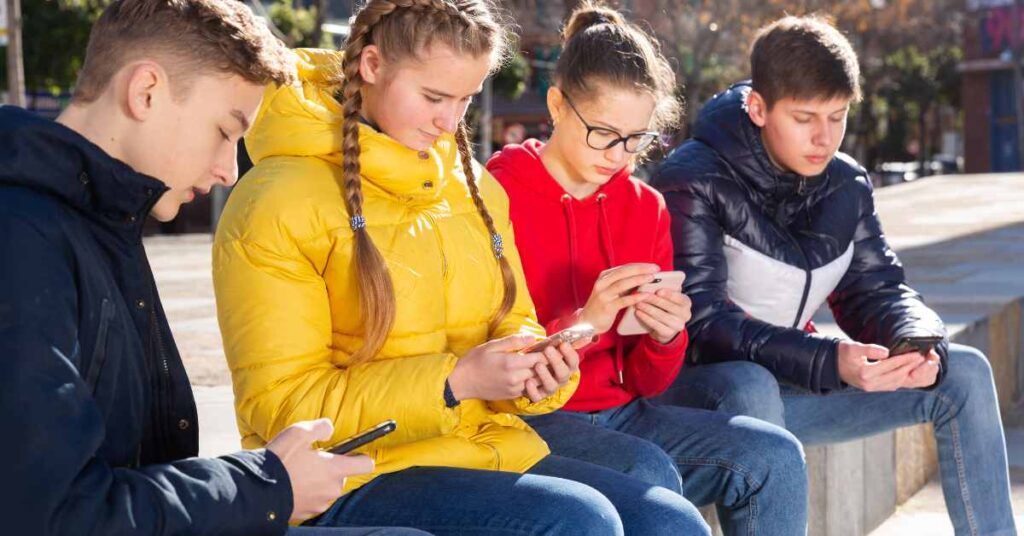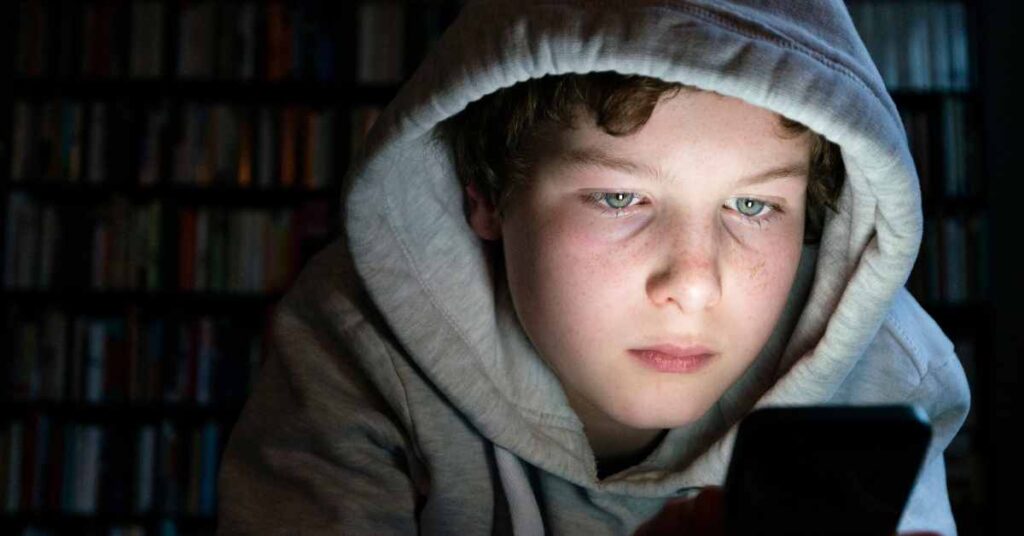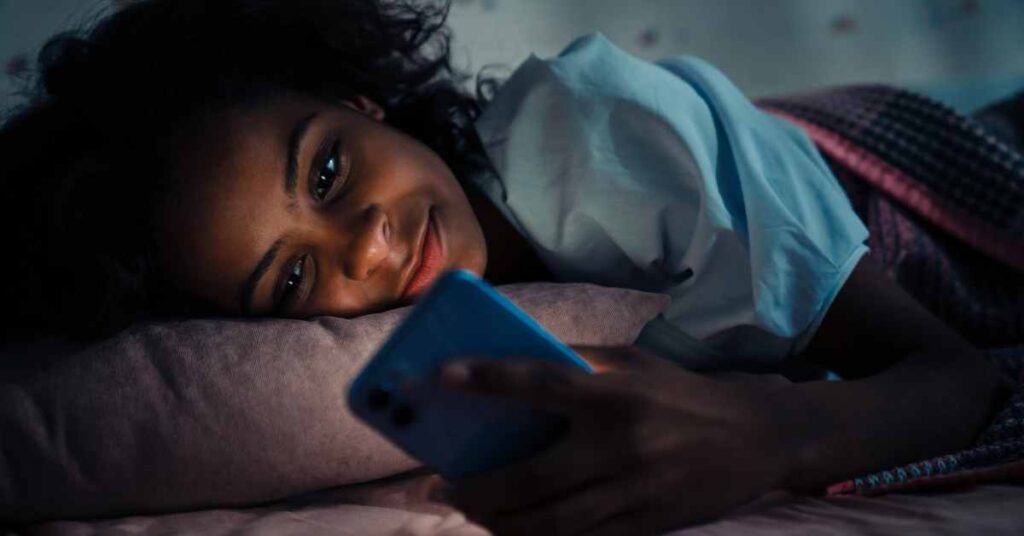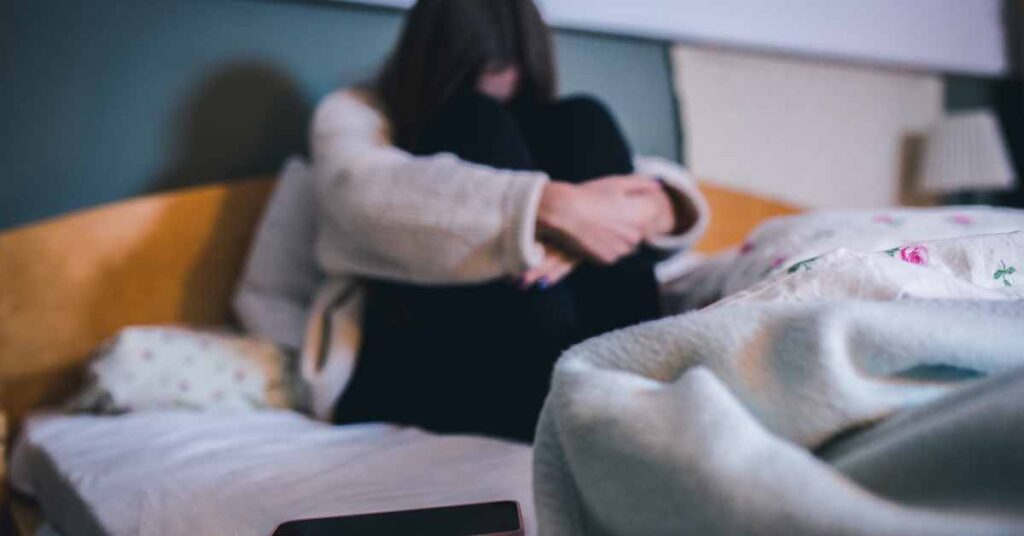
Side Effects of Excessive Screen Time on Teens: Tips for Parents from a Counselor for Teens in Birmingham, Alabama.
The U.S. Surgeon General issued a a recent warning calling the youth mental health crisis the defining public health issue of our time. The Surgeon General and other experts are linking this mental health crisis to use of smart devices and social media. Experts are finding that adolescents and teens are on their screens and social media in excessive amounts and the relationship between adolescents and teens and their social media is contributing to excessive anxiety and depression.

What do we know about excessive screen time and the Mental Health of Teens?
We know from research that teens who spend more than 3 hours a day on social media face double their risk for anxiety and depression. Over half of the teens in our country report they are spending a minimum of fours hours a day on social. Most teens favor Instagram and Tik Tok over other channels of social media. We also know that the rise in teen depression coincides with the rise of smart phones and social media.
Evidence suggests that chronic excessive screen time may also negatively impact the brain development of adolescents. One particular scoping review analyzed 44 articles across 16 countries. This research found “overall increased screen time is associated with negative outcomes such as lowered self-esteem, increased incidence and severity of mental health issues and addictions, slowed learning and acquisition, and an increased risk of premature cognitive decline.”
The average American teen will spend 30 years of life behind a screen. With algorithms designed to entice young people down a Tik Tok rabbit hole, it is no wonder that kids, teens, and even adults lose track of time when online. Experts are also finding that teens are on their phones until early morning hours on school nights. It is one thing to be spending too many hours of day light on screens. It is another to lose precious hours of sleep. Insufficient sleep poses a complicated set of health risks for adolescents and teens.

The Negative Effects of Lack of Sleep on Teens
Insufficient sleep can come in two different forms for teens. Deficient sleep is an inadequate amount of sleep to meet the sleep needs of a developing adolescent or teen. Timing misalignment of sleep can also negatively affect adolescents and teens. Timing misalignment is sleeping at times that do not coincide with our natural circadian rhythms.
Insufficient sleep in adolescents and teens can increase inattentiveness (so it might not be ADHD causing inattention. It might be poor sleep) and a reduction in executive functioning. Executive functioning is still developing in adolescents and teens. Teens are already likely to be more impulsive and emotion driven, rather than logic driven because of their stage of brain development.
So we certainly don’t want to see teens jeopardizing their optimal executive functioning by not getting enough good sleep. Lack of good sleep can lead to poor academic performance, increased obesity, and higher cadio-metabolic dysfunction. Adolescents and teens not getting enough good sleep suffer from higher rates of mood disturbances and increased suicidal thoughts.
Due to the compromise of executive functioning, teens who are not getting enough good sleep are at a higher risk of risky behaviors like alcohol and substance abuse. Teens in this category are also at higher risk of being involved in a car accident and getting sports related injuries.
The Role of Dopamine: Explained by a Counselor for Teens in Birmingham Alabama
According to Dr. Anna Lembke, a psychiatry professor at the Stanford and author of the book Dopamine Nation: Finding Balance in the Age of Indulgence, when we consume digital media like TikTok, podcasts, and YouTube—our brains release a lot of dopamine in a specific part of the brain called the reward pathway. When dopamine is released down the pathway, it creates a good feeling in the brain. A like or comment on a post can activate this dopamine release.
Our reward pathway works best when dopamine stays at a steady natural level, with spikes at different points throughout the day. Dr. Lembke states that most of the digital content on our devices is instead designed to activate the reward pathway as strongly as possible, like water bursting through a dam.
The brain responds to stimulation from our devices much in the same way it responds to drug addiction.
Lembke explains that in order to compensate for the amount of dopamine released as a result of interaction with a device our brain will start to lower dopamine production and transmission, to try to bring it back to baseline. Just like an addict needs more and more of a substance not to feel good and happy, but just simply to not feel badly, so must one continue to ingest more and more digital media
Teens are driven by the Amygdala, or the emotion center, of the brain. Their frontal lobe, which is in charge of executive function is not fully developed yet. What does this mean for our teens? It means that if they are getting dopamine and positive emotions from using digital media, they are more likely than adults to get sucked in to using more and more. It is an unfair battle teens are facing.

Social media and mental health: Mental Health Crisis Explained by a Counselor for Teens in Birmingham Alabama
Sixty-seven percent of kids state they are hiding information from their parents online and on social media. Kids that use more than three hours of social media a day double their risk of anxiety and depression. One in five children say they have experienced online bullying.
Several teens were recently interviewed on the Today Show about their relationship with their phones and social media.
One teen interviewed remembers receiving her first phone at ten yeas old. When she first joined social media, she found other accounts she did not follow on the explore page. She saws posts about models and weight loss. She began by swapping out carrots for a candy bar. Soon she began searching “how to hide your food” so she could keep from eating at all. She was subsequently hospitalized 13 different times for an eating disorder. At 15 years old, her doctor told her she would die in the next two weeks if she did not drastically change.
Another teen reports seeing perfect bodies and filtered photos which she says contributed to feelings of inferiority.
Larissa May, wellness activist and founder of “Half the Story” states that her wake up call with social media came when she almost ended her own life. She reports when she was checked into the psych ward of the hospital she had been spending 10-12 hours a day on social media.
Forty-six percent of 13-17 year olds report that social media makes them feel worse about themselves.
Even though smart phones were developed for adults, not kids, phones and digital media are not going away. So what can we do to protect kids and teens and their mental wellbeing?

Tips for Parents and Teens: How to have a healthy relationship with smart devices and social media from a Counselor for Teens in Birmingham Alabama
We could monitor the amount of time spent on screens daily. But who consistently has the time to do that?
If we don’t monitor time spent, how can we make sure our teens have a healthy relationship with their smart devices and with social?
Human nature seems to be that whatever we are told we can not have is what we want the most, right? So, instead of making phones and social media taboo or the ultimate bad guy, we suggest focusing on what matters more and setting boundaries to protect what is most important.
Make Space for important conversation
Most teens are curious, want to learn, and want to be involved in the decisions that affect them. So talk. Inform kids and teens about the negative effects of too much exposure to digital media and social media. Ask them for their thoughts about ways to make sure they are mindful and intentional about their use, controlling their behavior with their devices rather than the devices controlling their behavior.
Focus on Values and Goals
Talk to your teens about their hopes and dreams. Be real about the time and energy it will take to reach these goals. Then be real about the likelihood of your teen reaching those goals if they spend hours of day on devices. Talk about values often with your teens. It is so easy to stare at their screens the moment they have a break. This can lead to a complete lack of sense of self, no self reflection. So ask open ended questions to help your child become more self aware. They must know who they are and what is important to them to have high self-esteem.

Make sure teens are spending their time well.
Closely related to focusing on values and goals. We humans have many needs that must be fulfilled for us to live a mentally well, happy life. We need to have our physiological needs met. We need to feel safe. We need to feel connected to others, like we belong. Before we can be the best versions of ourselves individually, we must meet these needs. If your teen is playing sports, or being active in some way most days… If your teen is completing homework and doing well in school…If your teen is spending time with friends and family in person…then there is not too much time left of to have an unhealthy relationship with smart devises. Make sure your teen is paying attention to meeting these needs.
Discourage comparisons
Everyone on social media is curating photos with filters to show the world the very best versions of their lives. These are tiny snippets of life and definitely not reflective of real life. Even though we logically know that, humans naturally compare ourselves to others. We don’t compare ourselves to those that we think are lesser than us in any way. We compare our hair to the model with the most amazing hair. We compare our intellect to the Harvard Magna Cum Laude graduate. We must help our teens consciously avoid comparing to others. It never works in their favor mentally. When comparing to others we can easily get caught up in what others are doing and what we need to do to be accepted by them. Instead we want our teens focusing on their values and goals, rather than the agenda of others.

Foster a Positive Body Image: Tips from a Counselor for Teens in Birmingham Alabama
Social media can clearly affect our relationship with food, eating, and body image. To foster a positive body image there are a few things parents can do. Talk to your teen about what they are grateful for when it comes to their bodies and how they function. What do their bodies enable them to do that they enjoy? Walk? Run? Paddle board? lift heavy objects? How can your teen support a healthy body with social media habits and their relationship with food? Make sure you set a good example with how you treat food and how you talk about your body. Our bodies are amazing machines that enable us to live rich and fulfilling lives. Focus on this and the habits that create overall health rather than focusing on how they look.
Protect healthy sleep and other no tech time.
Good sleep is a huge component to mental and physical wellbeing. Protecting sleep with non-negotiable boundaries is key. Take your teens phone before a reasonable bed time every night. Do not let them keep it in their rooms. They might give push back, but if you are unwavering, that push back should not last long. Put all phones up for dinner and other important family time. It is important to lead by example here.
Empower Counseling can help your teen have a healthy relationship with phones and social media
All of our knowledgeable therapists are trained in acceptance commitment Therapy. ACT is a powerful type of therapy that can help teens increase self-esteem and self-confidence. We help teens become more and more aware of who they are and what they want. Focus on this makes devices, gaming and social media way less important. It makes spending time taking action toward their goals, their own idea. When teens want more for themselves, we as parents can relax a little and stop pushing so much.

Empower Counseling: We are Counselors for Teens in Birmingham, Alabama
Our therapists for teens help kids be smart with their devices and use them intentionally, rather than mindlessly endless scrolling.
Counseling for teens is not the only service we offer at Empower Counseling in Birmingham Alabama. We also offer Acceptance Commitment Therapy for anxiety, depression, difficult life transitions, trauma and PTSD, and counseling for perfectionism. Our clients receive scientifically back therapy in person and online throughout the state of Alabama. Our team at Empower Counseling, Marti, Savannah, and Kathryn, offers counseling for teens, college students, young adults, and Counseling for professionals.
It is easy to get started with a free phone consultation:
- Click here and leave us a quick message.
- We will contact you ASAP
- You meet your new therapist and begin to make positive change.
A couple of other interesting blog posts for you:
